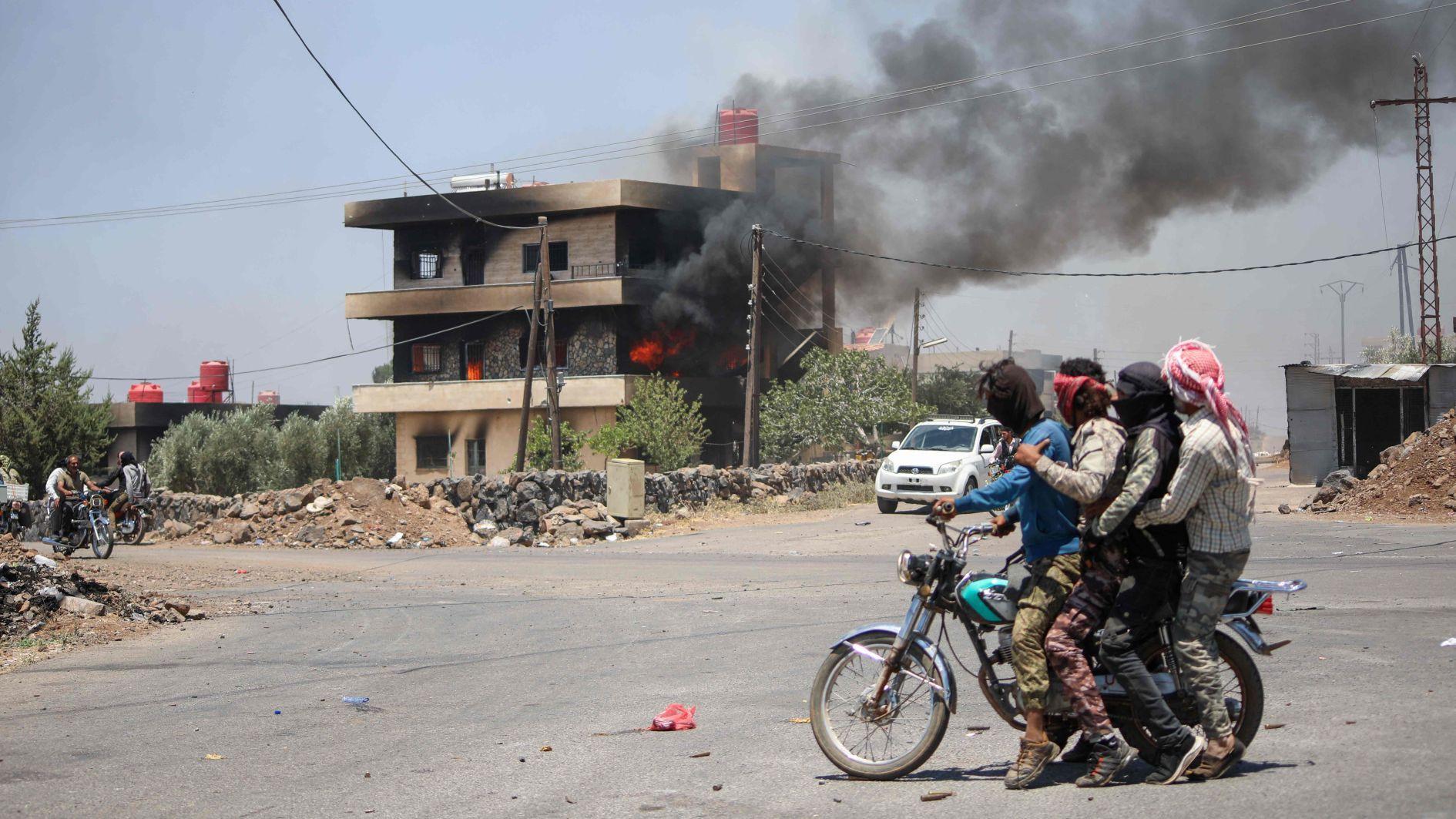
Calm appeared to have returned to southern Syria's Sweida province on July 20, armed Bedouin clans withdrew from the Druze heartland under a fragile ceasefire brokered following over a week of clashes.
All parties in Syria have agreed to pause violence as of 5 p.m. Damascus time on July 20, the U.S. special envoy for Syria announced.
"All parties have navigated to a pause and cessation of hostilities," Tom Barrack wrote on X.
The envoy said containing escalating hostilities requires an agreement to pause violence, protect civilians, allow humanitarian access, and step back from danger.
“The next foundation stone on a path to inclusion, and lasting de-escalation, is a complete exchange of hostages and detainees, the logistics of which are in process,” he said.
The Syrian Observatory for Human Rights said that since around midnight, "Sweida has been experiencing a cautious calm," adding government security forces had blocked roads leading to the province to prevent tribal fighters from heading there.
Sectarian clashes that erupted on July 13 between the Druze and Bedouin rivals drew in the government, Israel and armed tribes from other parts of Syria, killing more than 1,000 people according to the Observatory.
President Ahmad al-Sharaa on July 19 announced a ceasefire in Sweida and renewed his pledge to protect Syria's ethnic and religious minorities.
The Interior Ministry said overnight that Sweida city was "evacuated of all tribal fighters, and clashes within the city's neighborhoods were halted.”
A spokesman for Syria's tribal and clan council told Al-Jazeera that fighters had left the city "in response to the call of the presidency and the terms of the agreement.”
A medic inside Sweida also told the media that "the situation is totally calm... We aren't hearing clashes."
"No medical or relief assistance has entered until now," the medic said.
Inside the city, where around 150,000 people live, residents have been holed up in their homes without electricity and water and food supplies have also been scarce.
The Bedouins' withdrawal brought a cautious calm to the area, with humanitarian convoys reportedly on their way.
Sharaa's announcement came hours after the United States said it had negotiated a ceasefire between Syria's government and Israel, which had bombed government forces in both Sweida and Damascus earlier in the week.
Syria at ‘critical juncture’
Commenting on the situation, Barrack said that the country stood at a "critical juncture,” adding that "peace and dialogue must prevail, and prevail now.”
"All factions must immediately lay down their arms, cease hostilities, and abandon cycles of tribal vengeance," said Barrack, who also served as U.S. Ambassador to Türkiye.
"Brutal acts by warring factions on the ground undermine the government's authority and disrupt any semblance of order.”
U.S. Secretary of State Marco Rubio also urged the Syrian government's security forces to prevent jihadists from entering and "carrying out massacres" in the south, and called on Damascus to "bring to justice anyone guilty of atrocities including those in their own ranks.”
Barrack also held a meeting with Mazloum Abdi, the head of the YPG-led Syrian Democratic Forces (SDF) that controls northern Syria.
The two discussed the current situation in Syria and the urgent need to restore calm and stability, according to a statement from the U.S. Embassy for Syria.
They also discussed practical steps towards integration into a unified Syria for a “peaceful, prosperous, inclusive and stable future for all Syrians,” the statement said.
Damascus and SDF first struck an accord for integration in March with U.S. backing, but its implementation has been held up by differences between the two parties.